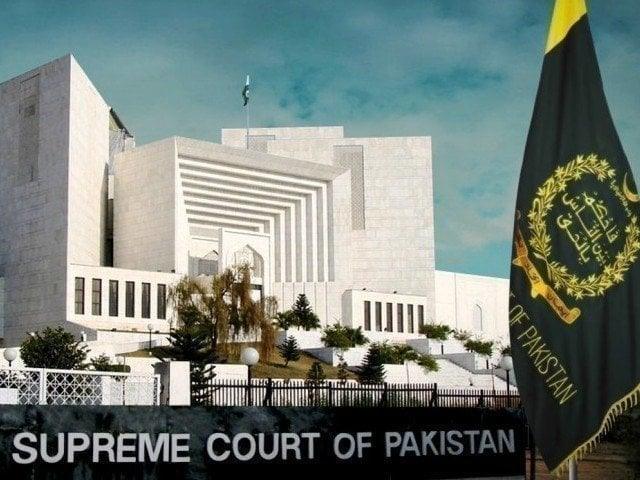ISLAMABAD:
The Supreme Court’s Constitutional Court on Thursday questioned the relevant authorities’ decision to split cases from the May 9, 2023 riots between military courts and anti-terror courts (ATCs).
During the hearing of the appeal within the courts regarding the military trial against civilians, Defense Ministry lawyer Khawaja Haris argued that the apex court’s decision meant that even enemies such as Indian spy Kulbhushan Jadhav could not be tried in military courts.
The seven-judge constitution bench, headed by Justice Aminuddin Khan, continued to hear the appeal. During the proceedings, Khawaja Haris presented his arguments while the judges raised several issues, including a reference to Indian spy Kulbhushan Jadhav.
The appeal before the court stemmed from the judgment of a five-member bench of the Supreme Court on 23 October 2023, which allowed the petitions against the trial of civilians involved in the 9 May 2023 riots and declared their military trial null and void. .
During the arguments of Khawaja Haris, Justice Muhammad Ali Mazhar asked the counsel that since the Supreme Court had declared ground (d) of sub-section (1) of section (2) of the Army Act invalid, then spies like Kulbhushan Jadhav could be tried in military courts.
Expanding on the overall impact of the Supreme Court verdict, Khawaja Haris replied that after the verdict, even the spy could not be tried in military courts. On that, Justice Jamal Khan Mandokhail emphasized the need to strengthen the prosecution.
“Why are we not strengthening our prosecution system? Why are the anti-terror courts not being strengthened,” Justice Mandokhail asked. He added that the courts had only made the decisions after looking at the evidence; therefore, the prosecution had to be strengthened.
Justice Mandokhail and other bench members including Justice Naeem Akhtar Afghan and Justice
Musarrat Hilali, asked the lawyer about the criteria and authority to decide which case should go to which court.
Justice Afghan said 103 accused in May 9 cases were tried in military courts while the remaining cases were tried in the ATCs. He asked how this distinction was made.
Justice Afghan also asked Khawaja Haris about any decision taken by the ATCs to hand over the accused to military custody. “Which case will go to military courts and which will not, how is this distinction made,” Judge Hilali asked.
Haris argued that the Supreme Court in its decision had rendered Article 233 – relating to a state of emergency – ineffective. He submitted that although Article 233 was not related to the court-martial proceedings, it was invoked to demonstrate the correct interpretation of Article 8(1).
Explaining Article 233, Haris noted that it empowers the President to suspend fundamental rights during a state of emergency. In response, Justice Mazhar noted that Supreme Court rulings on fundamental rights issues clarify that courts can exercise their authority even during an emergency.
Justice Aminuddin Khan said that during the Emergency, fundamental rights could be defended in the courts, only their implementation was suspended. Justice Hilali pointed out that in the present case, fundamental rights were not suspended when the accused were taken into military custody.
Haris said the Supreme Court ruling had said that staying the execution was tantamount to suspending fundamental rights. Judge Hassan Azhar Rizvi said there have been attacks on military installations in the past. He asked where all those cases were dealt with.
Justice Mandokhail observed that every court, including the military court, must be respected, but military courts should be established within the framework of the constitution, adding that the Supreme Court had held that no court could be set up in violation of the constitution.
During the hearing, the Additional Solicitor General of Punjab presented a report regarding the allegations of solitary confinement of the convicts on May 9. Justice Aminuddin Khan said the court could not pass any order regarding the convicts. The hearing of the case was adjourned till Friday (today).



